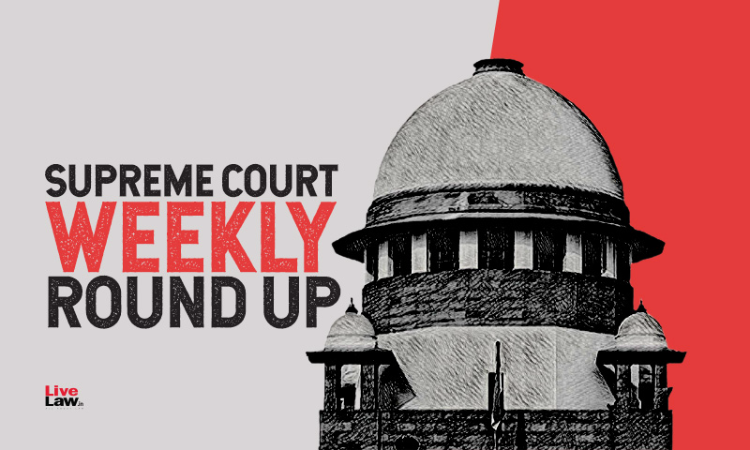Supreme Court Weekly Round Up May 3 to May 9, 2021
Nupur Thapliyal
9 May 2021 7:33 PM IST

Supreme Court Weekly Round Up April 3 to April 9, 2021
Next Story
9 May 2021 7:33 PM IST
JUDGMENTS THIS WEEK1. Supreme Court Strikes Down Maratha Quota; Says No Exceptional Circumstance To Grant Reservation In Excess Of 50% Ceiling LimitCase: Dr Jaishree Laxmanrao Patil v Chief Minister [CA 3123 of 2020] Citation : LL 2021 SC 243A Constitution Bench of the Supreme Court has struck down the Maratha quota in excess of 50% ceiling limit as unconstitutional. The Court unanimously...
